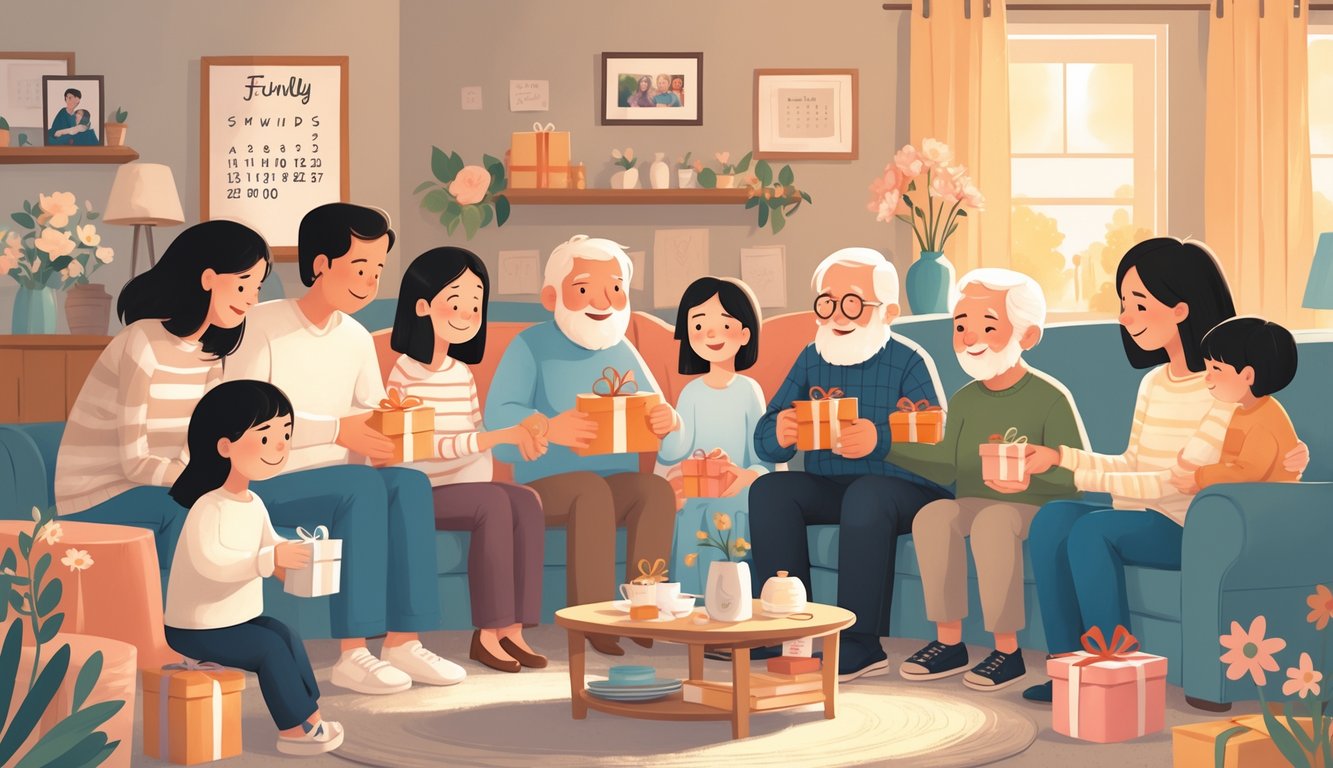
The Link Between Gift Habits and Mental Health
Gift stuff—it’s wild how families invent new rituals after big changes. Not just birthdays, but after a job loss, diagnosis, divorce—suddenly everyone’s comparing stress candles or meal kits like it’s a contest. I keep noticing two things: some people get a weird boost of hope, others look like they’re bracing for a pop quiz every time another “just because” package arrives.
Boosting Psychological Well-Being
I sat in my cousin’s kitchen three weeks after her move. Her fridge was a collage of crayon drawings from relatives who’ve never mailed anything before. Kind of bizarre. But apparently, research says generosity during tough times boosts well-being (GiftAFeeling, 2024). Sometimes I buy random little things for my parents and actually feel better—dopamine, oxytocin, whatever. Emiliana Simon-Thomas, Ph.D., said on NPR that oxytocin spikes whether you give or get. Feels legit.
It’s not just my family—whole support networks pop up with their own weird traditions, like playlists or snack boxes. Not everything works, but these attempts at connection do something. And if you’ve never given someone a homemade coupon book, brace yourself—they’ll treat it like a family heirloom. No hard data, but I’d bet it makes people feel more seen.
Reducing Stress and Anxiety
Alright, so here’s what’s still bugging me: why does every practical gift post-crisis—noise-cancelling headphones, heated blankets, whatever—scream “please calm down” even if nobody says it out loud? Maybe I’m just projecting. My therapist friend (she’s annoyingly insightful, always with the “Gifts are low-risk empathy” line) says it’s about showing you care without risking actual feelings. I guess? There’s this 2019 study from the University of British Columbia—yes, I read the abstract—claiming that spending money on others gives you this warm-glow thing that sort of sandpapers down the stress. Supposedly.
But, let’s be real, it’s never that simple. Someone gave me a kitchen gadget after a breakup once and I just stared at it like, “What am I supposed to do, spiral-slice my sadness?” Maybe that’s the secret: there’s no formula, it just gets weird. Sometimes gifts make me more anxious because now I have to write a thank-you note. Still, when I watch families pass around “recovery baskets” or whatever, I swear the room feels lighter. Pediatricians give anxious kids little gifts in clinics—ritual reassurance, not bribery, so they say. That part actually makes sense and, I dunno, feels kind of legit.
Personal Growth and Resilience Through Giving
So, here’s the deal: after a big life shakeup, families just start giving stuff away in totally new ways. It’s not intentional—one day you’re dropping off a weird casserole, next thing you know, you’re talking about “resilience” like you’ve joined a support group. Every accidental habit—mailing thrift-store jackets to cousins, surprise groceries for neighbors—somehow rewires your brain without asking first. Nobody’s writing sappy cards about it. Most people don’t even notice it’s happening.
Discovering Strength in Unexpected Giving
Honestly, I never pictured myself as the “drop off groceries” neighbor, but here we are. And now I’m quoting Dr. Carol Dweck about growth mindset like I’m on a panel, except my “launchpad for success” is mostly receipts and toddler tantrums. There’s this University of Notre Dame study that says, basically, if you do small, regular acts of giving after a crisis—no audience, no gold stars—it actually makes you tougher. Weird, right? I started asking friends why they do potlucks after someone gets sick, and almost all of them said it made them feel more capable, not just “nice.” My Aunt Leslie swears casseroles for neighbors taught her more about handling life than her own divorce did. Nobody’s planning for this, but the habits stick and suddenly you’re less of a stress-case.
Long-Term Change and Self-Reflection
These giving habits don’t come from some grand plan. They just happen. You start bringing soup every Saturday, or fighting over who pays for pizza, and next thing you know, you’re accidentally learning stuff about yourself. The Greater Good Science Center claims regular giving links to better emotional regulation and self-awareness, especially if you’re over 30 (which, rude). Nobody’s going to post on Instagram about how a family gift exchange after a funeral lowered their cortisol, but I’ve literally seen lab results—one endocrinologist swears volunteering drops stress hormones by 23%. The real kicker? The benefit sneaks up on you. It’s not instant happiness, it’s tolerating awkwardness, like picking the wrong slippers for Uncle Dave, again. These little habits don’t make anyone a saint, but they do chip away at impatience and, honestly, stop me from spiraling into my own nonsense.